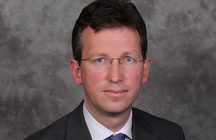Jeremy Wright – 2019 Statement on Free TV Licences for Over-75s
Below is the text of the speech made by Jeremy Wright, the Secretary of State for Digital, Culture, Media and Sport, in the House of Commons on 11 June 2019.
The BBC is a fundamental part of the social and economic fabric of this country. It is important for people of all ages, but particularly for older people, who value television as a way to stay connected with the world.
The Government recognised the importance of the licence fee when we agreed a funding settlement with the BBC in 2015 to provide the BBC with financial certainty to plan over the long term. We agreed to take action further to boost the BBC’s income by requiring iPlayer users to have a TV licence, and we unfroze the licence fee for the first time since 2010 by guaranteeing that it will rise each year in line with inflation.
In return, we agreed that responsibility for the over-75 licence fee concession would transfer to the BBC in June 2020. We agreed a phased transition to help the BBC with its financial planning as it did so. This was a fair deal for the BBC. At the time, the BBC director-general said the settlement represented
“a strong deal for the BBC”,
which provided “financial stability”.
The BBC is operationally independent, so the announcement yesterday is very much its decision, but taxpayers want to see the BBC using its substantial licence fee income appropriately to ensure it delivers for UK audiences, and that includes showing restraint on salaries for senior staff. In 2017-18, the BBC received over £3.8 billion in licence fee income—more than ever before. The BBC is also making over £1 billion a year from commercial work, such as selling content abroad, which can be reinvested. So we are very disappointed that the BBC will not protect free television licences for all viewers aged 75 and over.
The BBC received views from over 190,000 people as part of its broader public consultation, which sought opinions on a number of options. With a number of proposals on the table, the BBC has taken the most narrowly defined reform option. I firmly believe that the BBC can and should do more to support older people, and I am now looking to it to make clear exactly how it will do that.

